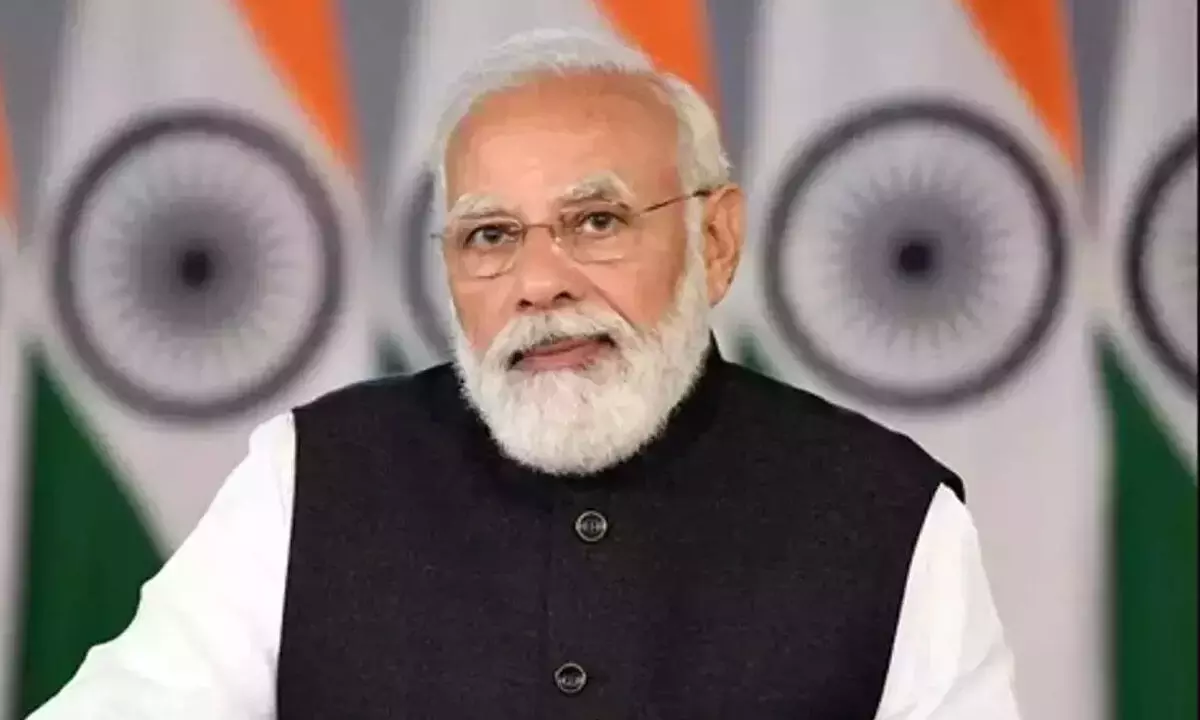Modi Govt must cut compliances, conditionalities to get more investments
Among 69,233 unique compliances that regulate doing business in India, 26,134 clauses have imprisonment clauses as a penalty of non-compliance
image for illustrative purpose

It is nice to find that top government functionaries, including Prime Minister Narendra Modi, are urging international investors to set up shop in India. On Friday, he listed out half a dozen reasons for putting money in the country.
Three days before that, Finance Minister Nirmala Sitharaman had interacted with businesspersons at the Silicon Valley, beseeching them to invest in India. The same day, Minister of Road Transport and Highways Nitin Gadkari asked Tesla chief Elon Musk to manufacture e-vehicles in our country.
Making a pitch for investment in India at this juncture makes sense, because in the recent past the government took a few good decisions to win the confidence of global businesspersons. Ending retrospective taxation, which gave India a bad name all over the world, must have unruffled many a feather. The restart of privatization also shows the regime's commitment to economic reforms.
Addressing the inaugural session of Semicon India Conference 2022, the Prime Minister said, "I see six reasons for India being an attractive investment destination for semiconductor technologies. First, we are building the digital infrastructure to connect over 1.3 billion Indians."
Second, we are paving the way for India to lead the next technology revolution, he said. "We are on our way to connect six hundred thousand villages with broadband. We are investing in developing capacities in 5G, IoT and clean energy technologies. We are working to unleash the next wave of innovation in data, AI and other technologies."
Third, India is headed for robust economic growth. Fourth, we have undertaken wide-ranging reforms for improving ease of doing business in India. Fifth, we are investing heavily in skilling and training young Indians for the needs of the 21st century.
"And, sixth, we have undertaken several measures towards transforming the Indian manufacturing sector," Modi said. He also talked about the production-linked incentives' schemes which offer incentives of over $26 billion in 14 key sectors.
The government's strategy seems to be quite comprehensive, covering both the hi-tech sectors and manufacturing, but a lot more needs to be done. Consider the case of compliances. "Last year, we abolished more than 25,000 compliances and gave a push towards auto-renewal of licenses," Modi said. "Similarly, digitization is also bringing speed and transparency to the regulatory framework. Today, we have one of the most favorable taxation structures in the world."
This is good news, but the situation on the ground is so bad that it will take a while to improve things. A new monograph by the Observer Research Foundation, released in February this year, showed that among the 69,233 unique compliances that regulate doing business in India, 26,134 clauses have imprisonment clauses as a penalty of non-compliance.
Besides, there are the issues of unnecessary demands. Take the case of Swedish furniture giant Ikea, which was once troubled with the 30 per cent mandatory local sourcing rule. It sought relaxation seven years ago. Today, it aims to double its local sourcing to 50 per cent in the next few years. "We are continuously increasing local sourcing and intend to have more products made in India," Susanne Pulverer, chief executive officer of IKEA India, told the media last week. In a nutshell, India will do well by accelerating the pace of compliance removal and reducing the conditionalities on foreign investors. This will boost growth and generate employment.

